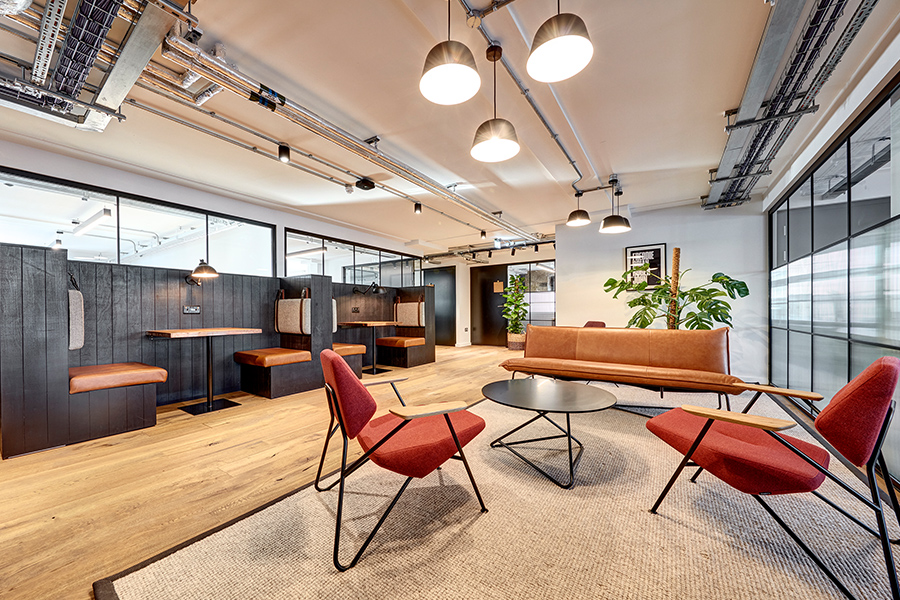Being offered a five-fold increase on your investment is the sort of no-brainer decision most people would jump at.
And yet, despite recent research from Deloitte suggesting that for every £1 spent on mental health strategies, employers receive £5 back alongside a marked increase in productivity, mental health provision is rarely the top priority in the workplace.
Ignoring mental health is demonstrably bad for business. The same Deloitte report showed that poor mental health costs UK employers between £42billion and £45billion a year, as more people with mental illness continue to work when they are not at their most productive, rather than taking time off. This figure has risen 16% since 2016, equating to an extra £6bn a year of costs for UK businesses. A prevailing culture of ‘leaveism’ and presenteeism promotes an ‘always-on’ attitude among staff, which in turn damages recovery times and results in lower productivity overall.
Investing in mental health is crucial to building a thriving and successful business where employees flourish and profitability is optimised. Even small steps to ensure that workers are supported can lower staff absence and increase wellbeing, leading to a happier, more productive workplace where people want to do their best.
All that may be true, but remarkably, an Aon Mental Health Report released in March found that 70% of businesses asked had no designated health and wellness budget, and 22% said they did not intend to introduce a wellbeing strategy within the next 12-18 months. This seems at best, bafflingly misguided, and at worst, negligent.
Less than 10% of employers measured the return on investment of their mental health and wellbeing strategy, while 32% said it was not important, which is money down the drain if Deloitte’s research is to be believed.
Clockwise’s own work in this area is a testament to the benefits it can bring with a number of practices put in place including:
- Our innovative partnership with Myndup offers our members free one-on-one therapy, counselling and life coaching. Myndup users have found that stress, anxiety and depression reduced by 96%, while 99% reported a boost in productivity, confidence and motivation.
- A Wellness Committee which is used to consider and propose programmes that support people’s wellbeing. We want our people to be able to raise concerns about their mental health as easily as they would for any other issues, and that means normalising honest conversations in the workplace.
- Regular initiatives like Wellness Hours, giving employees an hour to focus on themselves. We find that often this is the difference between someone getting back to work that day or not – offering them a moment to pause, reflect, and restart is crucial.
This has to be the future of the way businesses support employees and their mental health, particularly after a challenging year when many have felt the pressure of financial difficulties, bereavements, increased stress and loneliness. Health needs to be seen much more holistically, encompassing a more general sense of wellbeing as well as physical illness.

Clockwise Edinburgh Leith
If concerns for employees and how well they are working is not enough to convince businesses to act, the need for mental health support is playing out in recruitment and talent retention too. A growing number of the brightest and the best cite health and wellbeing facilities as a key reason to choose one employer over another. If businesses want to attract and keep the best staff, they have to be offering a full package of health support. It is not enough to put a basket of free fruit on the reception desk and hope your employees keep their chins up.
That said, let’s not try and reinvent the wheel: promoting good work/ life balance, ensuring people actually take their breaks (in a designated break space), and encouraging feel-good activities such as charity events are some of the simple but effective tweaks which businesses can use to keep the workforce on track mentally.
Big businesses simply cannot afford to bury their heads in the sand. New legislation coming down the tracks via the reform of the Mental Health Act will mean that late adopters are left behind, and there has been a cultural shift in recent years which means the wider public now values mental health alongside physical health in a way that perhaps was not the case 10 years ago.
People from minority ethnic backgrounds and those with other disabilities are particularly in need of better mental health provision, the government has said. Employers are often at the coal face, dealing with individuals day in, day out, and occupying a unique position of being able to offer support relatively quickly. In order not to look like dinosaurs, businesses need to up their mental health game and fast.
But it isn’t all doom and gloom. The results from the Aon study were not entirely without hope: 76% of businesses now have emotional or mental wellbeing strategies in place, and almost two-thirds of employers said they had a specific strategy in place covering mental health. Companies are beginning to wake up to the value of taking their workers’ mental health seriously.
And why wouldn’t they? It has been reasonably well accepted that looking after your employees’ physical health is of vital importance for some years. Businesses are rightly reprimanded when they, for example, do not provide earplugs to workers in noisy environments, or suitable chairs and desks for office workers. The mental health debate is beginning to take the same shape, and workers deserve better than many employers currently offer. Making mental health a priority shouldn’t be a hard decision; after all, it is good for business.
To find out how choosing the right working environment could be the first step to ensuring the wellbeing of your employees, reach out to us here at Clockwise. From bespoke workspace set-ups and Wellness hours to carefully designed areas for some break time R&R, we are dedicated to helping you and your team be the best you can be.





